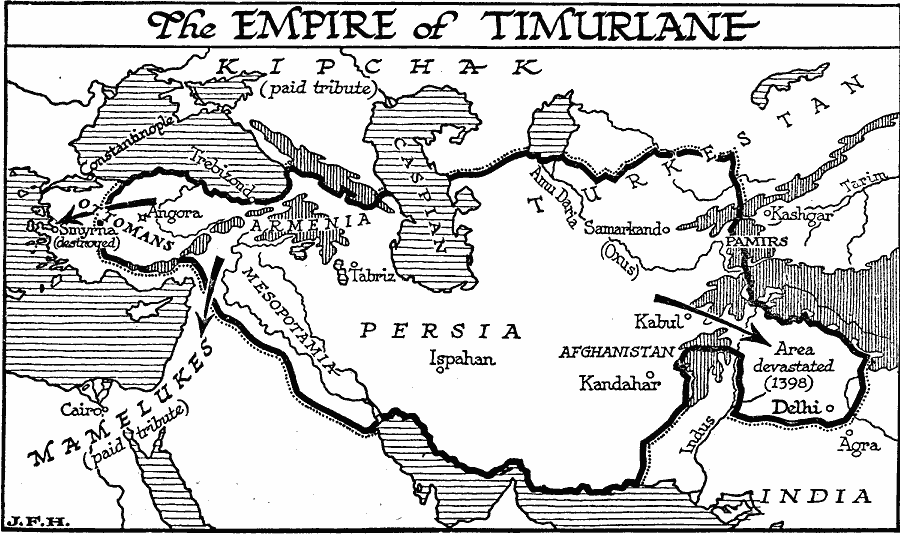Description: A map of the Asian empire of Timurlane the Mongol (Timur or Tamerlane) from 1369 to its dissolution in 1505. The map shows the boundaries of the empire at its greatest extent, and notes the areas of destruction (Smyrna and Delhi) and territories that paid tribute to the empire (Kipchak and Egypt). "The first destructive vigor of Hulagu's Mongols soon subsided, but in the fifteenth century a last tornado of nomadism arose in Western Turkistan under the leadership of a certain Timur the Lame, or Timurlane. He was descended in the female line from Jengis Kahn. He established himself in Samarkand, and spread his authority over Kipchak (Turkestan to South Russia), Siberia, and southward as far as the Indus. He assumed the title of Great Kahn in 1369. He was a nomad of the savage school, and he created an empire of desolation from North India to Syria. Pyramids of skulls were his particular architectural fancy; after the storming of Ispahan he made one of 70,000. His ambition was to restore the empire of Jengis Kahn as he conceived it, a project in which he completely failed. He spread destruction far and wide; the Ottoman Turks — it was before the taking of Constantinople and their days of greatness — and Egypt paid him tribute; the Punjab he devastated; and Delhi surrendered to him. After Delhi surrendered, however, he made a frightful massacre of its inhabitants. At the time of his death (1405) very little remained to witness to his power but a name of horror, ruins and desolated countries, and a shrunken and impoverished domain in Persia." — Wells, 1921, p. 691.
Place Names: Western Asia, Persia, �Indi
ISO Topic Categories: inlandWaters,
oceans,
location,
boundaries
Keywords: The Empire of Timurlane, physical, �political, physical features, major political subdivisions, inlandWaters,
oceans,
location,
boundaries, Unknown, 1398
Source: H. G. Wells, The Outline of History (New York, NY: The Macmillan Company, 1921) 692
Map Credit: Courtesy the private collection of Roy Winkelman |
|
